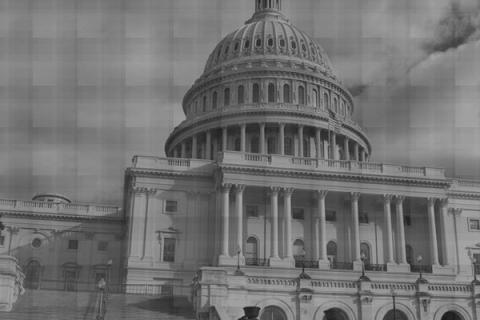Is the Tea Party an extension of the Republican Party, or has it become a movement all its own, a lone wolf among hungry, established packs?
As Tea Party candidates begin to gain traction, win elections, and appear to threaten the political establishment, one may be led to believe that the party has indeed become a party all its own. In Los Angeles, a case was heard this week in Superior Court over the legality of Tea Party-like members taking over office from Republican Party of Los Angeles County (RPLAC) members.
The case was heard in court almost exactly one year after the event in question took place, in May 2009. According to nonprofit Restore the Los Angeles County Republic (Restore LA), the skirmish began after “kings on the hill from the California State Republican Party tried to get heavy and throw these newcomers out of their elected offices.” While the complaint by the former group of RPLAC leaders was thrown out of court and the Tea Party-like group lost its bid, this event still brought attention to the tension between alternative political groups and established groups such as the GOP and the Democratic Party.
The official court complaint leveled by the former group of RPLAC leaders is actually quite interesting, and conjures up ideas of false kings and questions of “rightful” heirs to the proverbial throne. What constitutes a legal and valid local election, and what must happen for an election (viewed by some as perfectly legitimate) to be considered illegal and illegitimate?
Restore LA uploaded the court documented complaint against the Tea Party-like candidates, as leveled by a group declaring itself to be the rightful (former?) chairman and officer group of the Republican Party of Los Angeles County and against six named individuals, whom declare they are the real RPLAC officers!
The complaint leveled against the plaintiffs is threefold. First, for “injunctive relief”, second, for “an accounting”, and third, for “unjust enrichment; imposition of constructive trust; restitution and disgorgement.” The complaint describes the defendants as “Individuals who planned, implemented and executed an illegitimate and wrongful coup of the validly elected officers of RPLAC at a meeting conducted May 14, 2009, and who have improperly and falsely held themselves out as the Chairman and Executive Committee of RPLAC at all times since that date.”
The incident itself is complex and multifaceted. In summary, numerous RPLAC members appeared to grow frustrated with the leadership at the time, and in a special election in December 2008, the “old guard” members lost and/or walked out of the election as a sign of protest. Between December 2008 and May 2009, it became clear to some in the RPLAC that a lack of experience could hamper progress and effectiveness of the new leaders of RPLAC and/or the organization itself.
In response, a group of members took it upon themselves to suspend operations as usual, and appointed a new group to take over the leadership posts. The May 14 event was later characterized by plaintiffs as a “coup,” powered by an understanding that a “supermajority” of members could dissolve the current leadership structure, in an effort to better it.
According to the court document, the event and ensuing complaint is explained further: “The idea that a self-professed ‘supermajority’ can walk into a meeting; suspend the Bylaws; appoint a bogus ‘Temporary Chairman’ (on false pretenses) and then throw out the validly elected officers reflects a total misunderstanding of due process rights, good order, fundamental fairness…” The passion of the RPLAC complaint continued, as the plaintiffs call the May 14 event “entirely illegitimate, and the ‘supermajority’ argument is a complete fabrication conjured up by the plotters out of thin air.”
The complaint pits “old guard” and “new guard” against one another. Interestingly, it is those members of the old guard who are backing the suit, and the new guard individuals who lost their positions after late December 2008 elections are nowhere to be found.
In a December 2008 posting on Red County which Restore LA points to, former RPLAC officer Doug Boyd described the individuals responsible for the change of membership as being “Twenty supporters of former Presidential candidate Ron Paul.”
In a sense, this event shows the power of a committed group of individuals to take power back when it is deemed that current leaders are ineffective, are causing harm to their constituents, or simply are not fulfilling their duties. Or, perhaps this was just a case of competing factions, and one lucked out.
Interesting things to consider in this day and age, however.

